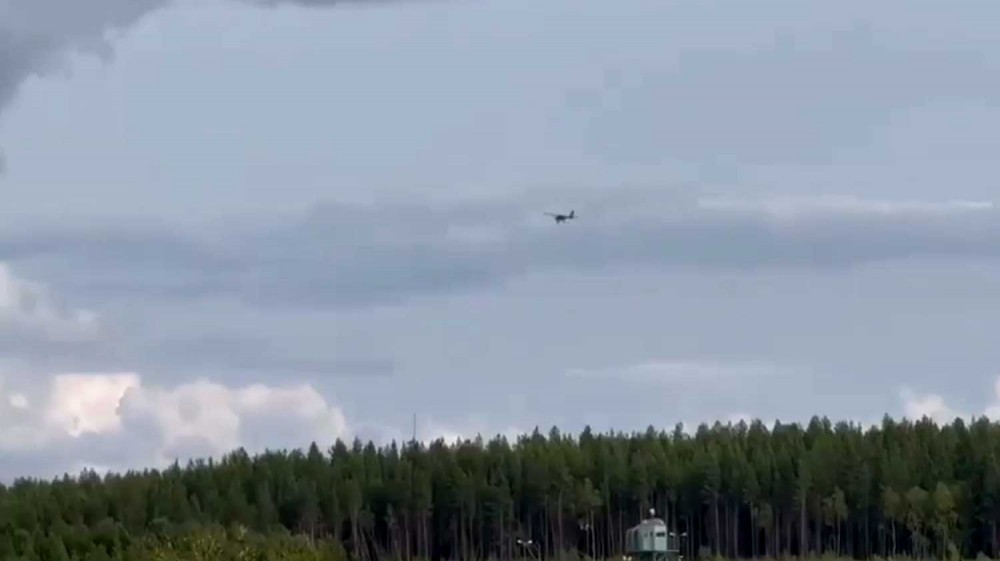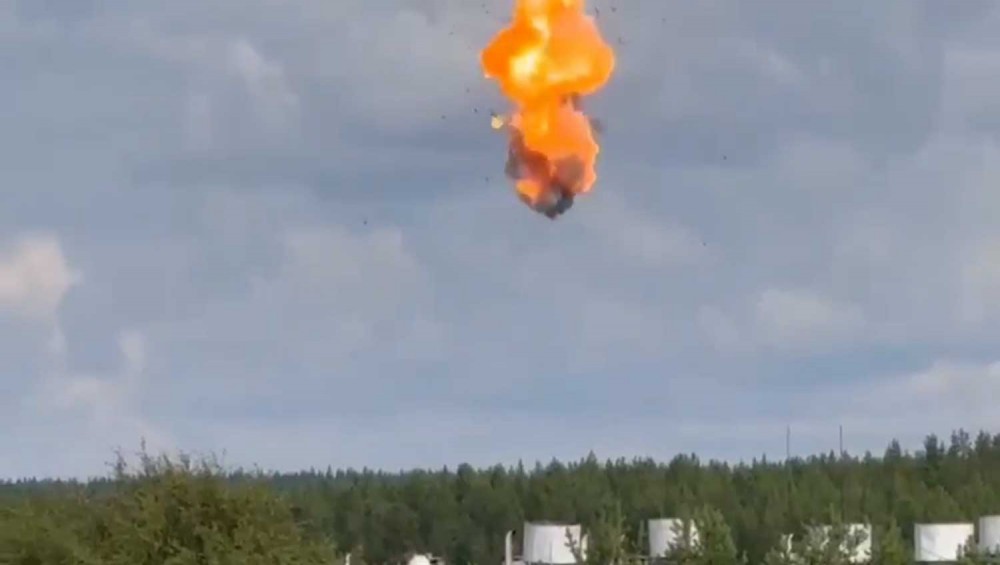At the Democratic National Convention in Chicago, Palestinian supporters were denied the opportunity to speak about the impact of Israel’s war on Gaza, even as pro-Israel speakers were featured.

AP
Harris delivered a pledge to secure Israel, bring the hostages home from Gaza and end the war in the besieged Palestinian enclave. / Photo: AP
Vice President Kamala Harris formally accepted the Democratic nomination for president with a rousing call to end the Israeli war in Gaza.
The speech laid out some broad policy principles, foreign and domestic, but left unsaid specific details which in weeks to come she could be pressured to provide.
After days of protests from Palestinian supporters who were disappointed at not getting a speaking spot at the convention, Harris delivered a pledge to secure Israel, bring the hostages home from Gaza and end the war in the besieged Palestinian enclave.
"Now is the time to get a hostage deal and a ceasefire deal done," she said to cheers.
"And let me be clear, I will always stand up for Israel's right to defend itself and I will always ensure Israel can defend itself."
"What has happened in Gaza over the past 10 months is devastating. So many innocent lives lost, desperate hungry people fleeing for safety over and over again. The scale of suffering is heartbreaking," she said.
"President Biden and I are working to end this war such that Israel is secure, the hostages are released, the suffering in Gaza ends and the Palestinian people can realise their right to dignity, security, freedom and self-determination."
The Democratic presidential nominee said she would “always stand up for Israel’s right to defend itself,” but also directly addressed the suffering in Gaza.
By Andrew Jeong and Yasmeen Abutaleb
August 23, 2024
Vice President Kamala Harris made some of her most direct and extended remarks yet on the war in the Gaza Strip as she accepted her party’s presidential nomination Thursday night, addressing an issue that has divided Democrats and drawn thousands of protesters to the Democratic National Convention in Chicago.
Offering a forceful defense of Israel and its right to protect itself, she said she was working round-the-clock with President Joe Biden to reach a cease-fire deal in Gaza that would involve the release of American and Israeli hostages still being held by the militant group Hamas.
“Because now is the time to get a hostage deal and a cease-fire deal done,” she told a packed Chicago United Center.
As Harris described a postwar future in which Palestinians can “realize their right to dignity, security, freedom and self-determination,” the crowd erupted with one of the loudest cheers of the night.
Harris has expressed support for Israel’s right to defend itself before, but she has generally spoken more forcefully than Biden about the plight of Palestinians, tens of thousands of whom have been killed in a months-long Israeli military operation that has plunged Gaza into a humanitarian crisis. She has also held Israel more directly responsible for the high civilian death toll in Gaza and slow pace of humanitarian aid.
The careful comments in her acceptance speech Thursday — emphasizing Israel’s right to defend itself but also directly addressing the suffering in Gaza, including starvation — highlight the delicate balance she must navigate in the final two months before Election Day.
She must maintain support among pro-Israel Democrats, but also try to win back significant numbers of Arab Americans, Muslims and other pro-Palestinian activists who have said they are open to her but waiting to see whether she is willing to diverge from Biden’s stance on the war.
If elected president, Harris said she would continue Washington’s support for Israel’s right to defend itself, “because the people of Israel must never again face the horror that a terrorist organization called Hamas caused” on Oct. 7, when Hamas militants launched a cross-border attack on Israel, killing about 1,200 people and taking roughly 250 hostages, about 70 of whom are believed to still be alive in captivity.
On the previous night at the convention, the parents of Hersh Goldberg-Polin, an American taken hostage by Hamas, shared their son’s story. They were greeted by chants of “Bring them home!” And as they spoke, images of the eight American hostages believed to still be held captive in Gaza appeared behind them.
Democratic leaders had been bracing for massive pro-Palestinian demonstrations outside the convention this week, fearing they could recall the protests of 1968. And while the Israel-Gaza war ultimately did not dominate the event, it still loomed over the four-day convention.
Pro-Palestinian protesters have staged rallies in Chicago during this week’s convention. Thousands convened almost every day about a half-mile from Chicago’s United Center, and several speakers treaded carefully when addressing the war during each evening’s lineup.
Niha Masih and Kelsey Ables contributed to this report.






